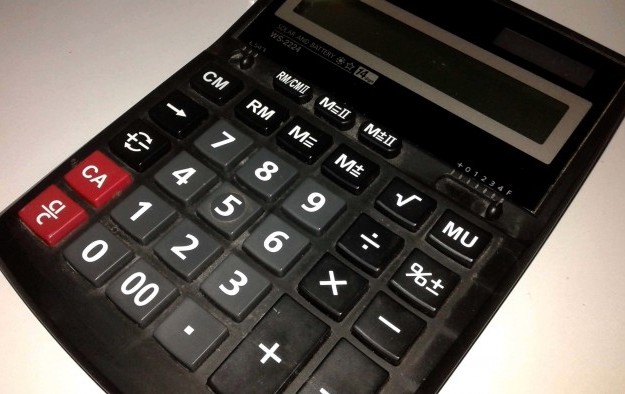Observers cast doubts on effect of Macau GGR tax cut idea
Sep 09, 2022 Newsdesk Latest News, Macau, Top of the deck

The Macau government’s idea of waiving part of the gaming tax as an incentive for the city’s casino operators to attract customers from overseas is probably “unique” amongst gaming jurisdictions, but doubts remain on how effective the scheme will be, say industry observers in comments to GGRAsia.
Macau’s newly-promulgated gaming law gives an incumbent chief executive the discretion to reduce the aggregate effective tax rate on casino gross gaming revenue (GGR) – which stands at 40 percent – by up to five percentage points for “reasons of public interest”, namely attracting “customers from foreign countries”.
Macau’s GGR tax is 35 percent of the gross, but a further amount corresponding to 5 percent is levied on the gross for social causes and other purposes. Under the new gaming law, the city’s incumbent chief executive could fully or partially exempt casino operators from paying the 5 percent on the gross that is currently levied for social causes.
Details on how the scheme might work in practice are still to be set out in a complementary legal diploma.
“If the [casino GGR tax] reduction is purely at the discretion of the [Macau] government, I doubt the prospect of a rate reduction will have much effect on the targeting of overseas patrons,” said David Green, gaming and governance consultant at Newpage Consulting. He was also formerly part of a consulting team hired by the Macau government to advise on casino-market liberalisation at the turn of the century.
Mr Green told GGRAsia: “There are jurisdictions which split tax rates between VIP and non-VIP players, such as Singapore and some Australian jurisdictions. This proposal [from the Macau government] is probably unique in tying the possible reduction to the origin of players, irrespective of their play.”
Even with a 5-percentage-point reduction of Macau’s aggregate casino GGR tax rate, such rate is still “much higher” than in other gaming jurisdictions, said Wang Changbin, director of the Centre for Gaming and Tourism Studies at the Macao Polytechnic University.
“Other factors such as location and culture also play a big role in attracting patrons from overseas. It is not easy to attract overseas customers just via tax reductions. Gaming is generally a local business unless the host city is famous for its tourism or has lots of other attractions,” Mr Wang told GGRAsia.
The Macau government’s thinking with the tax waiving proposal was that the city has been over-reliant on mainland China as a source of gambling customers, legislator Chan Chak Mo said in May. Mr Chan was at the time leading a Legislative Assembly committee tasked with reviewing the government-proposed amendment to the city’s gaming law.
The measure is expected to be introduced next year, once new gaming concessionaires start their contracts. The Macau government launched in July the public tender application process for up to six new 10-year gaming concessions, which runs until September 14.
“What the government should do, in the interests of both transparency and certainty, is to indicate how the rate reduction will be calculated,” stated Mr Green.
He added: “The government might consider a progressive rate reduction, with clear threshold metrics. For example, at MOP200 million [US$24.7 million] of non-China patron GGR, the rate might be reduced by 1 percent on that MOP200 million; by 2 percent on the next MOP200 million, and by 3 percent on the next MOP200 million after that, and so on.”
“A well-designed tax needs certainty and fairness if it is to be capable of effective collection, meaning that compliance is straightforward, and defensibly non-justiciable. It should also have a low drag effect: that is, it should not require [gaming] concessionaires, or the government, to devote significant resources to the calculation of the tax rate reduction, and resultant tax payable,” Mr Green added.
Jorge Costa Oliveira, founder and chief executive of JCO Consultancy Ltd, said on Thursday that the idea to attract more patrons from overseas via tax cuts should not be dismissed out of hand, because it had “never been tried”. Mr Oliveira, who had a central role as a Macau government official at the time of the city’s previous public tender for gaming licences, more than 20 years ago, was speaking at a panel titled “Macau gaming at a crossroads: the public tender and beyond”.
Related articles
-
 Macau govt to keep cap on junket...
Macau govt to keep cap on junket...Jul 10, 2024
-
 Macau 1H gaming tax revenue hits...
Macau 1H gaming tax revenue hits...Jul 09, 2024
More news
-
 Donaco EBITDA up y-o-y to above US$4mln...
Donaco EBITDA up y-o-y to above US$4mln...Jul 26, 2024
-
 HK listed Palasino upgrades Czech...
HK listed Palasino upgrades Czech...Jul 26, 2024
Latest News
Jul 26, 2024
Border-casino operator Donaco International Ltd has achieved a 164.17-percent year-on-year increase in its latest quarterly group earnings before interest, taxation, depreciation and amortisation...Sign up to our FREE Newsletter
 (Click here for more)
(Click here for more)
Pick of the Day
”We’ve got more traction outside of Macau at the moment. But Macau’s going be a bigger focus for us”
David Punter
Regional representative at Konami Australia
Most Popular
 Sheraton brand to exit Londoner Macao, to be Londoner Grand July 25, 2024
Sheraton brand to exit Londoner Macao, to be Londoner Grand July 25, 2024  Macau regulator probes unlicensed gaming agents July 24, 2024
Macau regulator probes unlicensed gaming agents July 24, 2024  Philippines gives 20k aliens in POGOs 60 days to leave July 25, 2024
Philippines gives 20k aliens in POGOs 60 days to leave July 25, 2024  Philippines-listed DigiPlus says not affected by POGO ban July 24, 2024
Philippines-listed DigiPlus says not affected by POGO ban July 24, 2024  Sands China 2Q EBITDA down q-o-q amid low hold, renovation July 25, 2024
Sands China 2Q EBITDA down q-o-q amid low hold, renovation July 25, 2024






